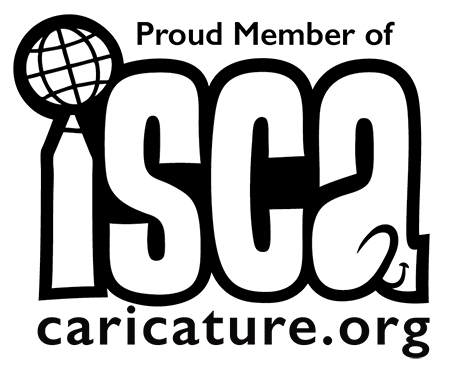What’s going on with the Orphan Works Act?
… good question. It’s “before the legislature” right now, meaning the 110th US Congress somewhere, but is not on the radar for imminent discussion or voting, and both the house and senate are about to take a break until the second week of August. However this can quickly change as bills often get pushed through on the backs of other bills that our esteemed congressional leaders want to see approved for their own reasons, and will vote for one to get votes for the other. Opposition or endorsement of a law is also dependent on whether it applies to someone or not in the sleazy world of politics. Case in point for the Orphan Works Bill: In March of 2008 the American Manufacturing Trade Action Coalition, the National Textile Association (NTA) and the Decorative Fabrics Association, representatives collectively of the US Textile industry, condemned the Orphan Works bill by saying:
“The proposed orphan work legislation is not a solution to the ‘orphan works’ problem. Instead, it is a blueprint for a radically new copyright law. The inability to distinguish between abandoned copyrights and those whose owners are simply hard to find…is the Catch-22 of the Orphan Works project. This legislation would orphan millions of valuable copyrights that cannot otherwise be distinguished from true orphaned works ?¬¢‚Äö?ᬮ” and that would open the door to commercial theft on an unprecedented scale.”
However last month these same organizations suddenly did an about face and now support the bill. Why? Because it’s reported they made a deal that exempts textiles from the bill. Now they endorse it. Nice, eh?
I read this quote by Senator Orrin Hatch (R-Utah) from May of this year:
“This vital legislation provides a mechanism to unlock these orphan works and bring them out in the public domain so Americans can enjoy them once again. It strikes an appropriate balance between protecting against copyright infringement and preserving our national and personal history.”
and
“There are scores of superb music, literary masterpieces and magnificent photos and art that clump corners, collect dust, fill floors and dot shelves in attics and storage rooms across the nation ?¬¢‚Äö?ᬮ” items of immense artistic and historic merit that are unavailable to Americans because their owners are unknown and people are leery of making the work publicly available for fear of being sued.”
Wow. Utah must the the leading producer of fertilizer in the U.S., if this pile of bullshit is any indication.
It would be a tremendously simple thing to create any number of fair use exemptions for the preservation of deteriorating or truly orphaned works for libraries, archives, museums, universities, etc. Documentaries or the creation of collections of works for the purpose of education or preservation is a no-brainer. In fact the Illustrator’s Partnership drafted a proposed Orphan Works solution that is nothing more than simple common sense and fair use that addresses the reasons these bills supporters keep quoting as justifying this lunacy. The Orphan Works legislation only hide behind those reasons, and in reality opens the door for massive commercial copyright infringement with no fear of financial punishment. My previous posts and links will spell it out for you if you missed them.
In some recent news, the International Council of Creators of Graphic, Plastic, and Photographic Arts is the latest in a long line of creative organizations to publically come out against this misguided legislation. Not surprisingly, both the American Association of Editorial Cartoonist and the National Cartoonists Society also publicly condemned the bills.
Journalist and author Steve Lehman started A Million People Against the Orphan Works Bill, a grassroots groupon Facebook and Flickr dedicated to fighting the Orphan Works Bill. He started an online petition that I urge you to go and “sign” asap.
As always, I encourage anyone who understands the severity of the damage these proposed bills will do to creative professionals to write their senators and representatives and make their concerns known, Yes, you can use the automated form letters set up for the purpose, but please take the time to call or write a personal letter instead if you can. They are worth 1,000 generic on-line forms.
Comments
Tom's Newsletter!
Sign up for Tom's FREE newsletter:
Categories
- Classic Rock Sketch Series (60)
- Daily Coronacature (146)
- Freelancing (173)
- General (1,659)
- Illustration Throwback Thursday (107)
- It's All Geek to Me! (53)
- Just Because… (1)
- MAD Magazine (919)
- Mailbag (691)
- Monday MADness (455)
- News (1,044)
- On the Drawing Board (160)
- Presidential Caricatures (47)
- Sketch O'The Week (850)
- Stuff from my Studio (21)
- Surf's Up Dept. (29)
- Tales from the Theme Park (17)
- Tom's MADness! (150)
- Tutorials (18)
- Wall of Shame (17)










Most crucially, there has been opposition from Lawrence Lessig. Crucial, because he was one of those who first championed the orphan works problem as a serious problem.
Thanks for the comment. I was aware of that and discussed the Lessig opposition in an earlier post. Since he has a reputation as someone wanting to see copyright be reduced or nearly eliminated and everything be public domain, his opposition is certainly significant.
Thanks, Tom, for all your hard work carrying the banner on this issue. It’s vitally important, and I hope everyone who reads this will take a moment or two to contact their Congressmen.